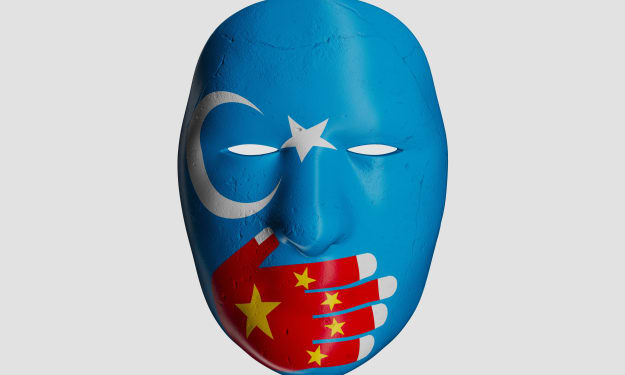ISRAELI OCCUPATION OF PALESTINE VIOLATES INTERNATIONAL LAW – COMMISSION OF INQUIRY
The Israeli Occupation of Palestine is the subject of a new report issued by the United Nations this week. Find out why it concludes that the occupation is illegal and what this means for the long-term resolution of the Israeli-Palestinian conflict.

As a teenager growing up in the 1970s, there were a few things I took for granted. These included inflation, unemployment and the energy crisis.
As I understood current events, the Organization of Arab Petroleum Exporting Countries (OAPEC) was greedily holding back its oil from western countries. I don’t remember anybody explaining why they’d want to do this.
I now realize the Arab countries had a more specific motive for their oil embargo. They were sanctioning Canada, Japan, the Netherlands, the United Kingdom and the United States for backing Israel in the Yom Kippur War.
ISRAELI OCCUPATION OF EGYPT’S SINAI PENINSULA
The issue behind that war was the Israeli occupation of Egypt’s Sinai Peninsula. Israel had captured it in the earlier Six-Day War.
Eventually, Israel returned the Sinai to Egypt in 1979. This was part of the Camp David Accords brokered by Jimmy Carter and signed by Anwar Sadat and Menachem Begin.
Israel and Palestine still haven’t found a solution to their conflicting interests, and last week the United Nations issued a new report on the Israeli occupation. It’s from the Commission of Inquiry on the Occupied Palestinian Territory that the UN Human Rights Council appointed in May, 2021.
“ISRAELI OCCUPATION OF PALESTINIAN TERRITORY UNLAWFUL”
Their report finds that “there are reasonable grounds to conclude that the Israeli occupation of Palestinian territory is now unlawful under international law owing to its permanence and to actions undertaken by Israel to annex parts of the land.” Under international law, when armies occupy territory during a war, it’s supposed to be temporary, and occupations don’t change the sovereignty of occupied countries.
Based on the commission of inquiry’s findings, Israel’s annexation of the Occupied Palestinian Territory is null and void. The commission is calling for the General Assembly to refer the issue to the International Court of Justice, also known as the World Court.
Israel has refused to cooperate with the commission throughout the process. Back in July, commission member Professor Miloon Kothari commented about this in a Mondoweiss Podcast interview.
“MONEY IS BEING THROWN INTO TRYING TO DISCREDIT US”
At one point, he told host David Kattenburg, “We are very disheartened by the social media that is controlled largely by, whether it’s the Jewish lobby or it’s very specific NGOs, a lot of money is being thrown into trying to discredit us.”
Conservative Israeli news agencies reacted swiftly to the comments, citing the phrase “Jewish lobby” as antisemitic. The commission’s chair, former UN High Commissioner for Human Rights Navi Pillay, defended Professor Kothari, saying the media took his off-the-cuff comment out of context.
Israel’s prime minister, Yair Lapid, wrote to UN Secretary General Antonio Guterrres saying, “I am writing to you to demand the immediate removal of all three members of the commission of inquiry tasked with investigating Israel, and the disbanding of the Commission.”
ISRAELI GOVERNMENT CALLS REPORT “DISTINCTLY ANTISEMITIC”
Now that the UN has published the commission’s first report, the Israeli government has called it “distinctly antisemitic.” The US government has also denounced the commission from the beginning.
US State Department spokesperson Ned Pride said that “Israel is consistently unfairly targeted in the UN system, including in the course of this commission of inquiry.” Commission members say Israel not participating in the inquiry may have contributed to findings the US and Israel consider slanted.
For example, the commission points out that Israel didn’t allow it to visit the occupied territories. That prevented them from investigating human rights violations by Palestinian authorities and militants.
“BIASED, FALSE AND BLATANTLY SUBJECTIVE”
“I feel compelled to emphasize that the UN report is biased, false and blatantly subjective,” Prime Minister Lapid tweeted in response to the report. “Not all criticism of Israel is antisemitism, but this report was written by antisemites (as Israel has already revealed) and is a distinctly antisemitic report.”
Back in 2011, the conservative Jerusalem Post quoted High Commissioner Pillay saying, “I utterly deplore and condemn antisemitism, as I do any form of incitement to hatred and racial discrimination.” The Post seems to vary how they depict the former high commissioner, depending on the target of their editorial attacks.
At the current session of the UN General Assembly, the US and Israel both supported a declaration that unilateral annexation of one state’s territory by another violates international law and is null and void. However, that resolution was about Russia’s annexation of Ukrainian territory.
“UNLESS UNIVERSALLY APPLIED, UN CHARTER MEANINGLESS”
High Commissioner Pillay’s remarks pointed out this double standard, saying, “Unless universally applied, including to the situation in the Occupied Palestinian Territory, this core principle of the United Nations Charter will become meaningless.”
Professor Kothari is an architect and a human rights scholar from India. He has served as the UN Special Rapporteur on adequate housing with the UN Human Rights Council, and he’s published over 50 works on housing, land rights and related issues.
The housing scholar has criticized human rights abuses in countries around the world. He’s advocated for the rights of displaced people in many circumstances, not merely in the Israeli Occupied Territories.
HASN’T FOCUSED ON ISRAEL FOR CONDEMNATION
High Commissioner Pillay is a Tamil from South Africa. Back in 1967, she was the first woman to practice law in her home province of Natal. She also attended Harvard, where she earned a Master of Laws and a Doctorate of Juridical Science.
During apartheid, High Commissioner Pillay defended human rights activists, exposing torture cases. Her work contributed to improved prisoner rights at the notorious Maximum Security Prison on Robben Island where three future South African presidents were inmates, including Nelson Mandela.
Israel’s objections to the commission’s report so far rely more on personal attacks against the inquiry’s members than on answering charges about the Israeli occupation. In any case, given their backgrounds, accusations of antisemitic attitudes or behaviour by commission members appear to be diversions.
“AGREEMENT BASED ON TWO STATES FOR TWO PEOPLES”
Regardless, in his speech to the General Assembly, Prime Minister Lapid appeared to soften his government’s position on the Israeli occupation. He told world leaders, “An agreement with the Palestinians, based on two states for two peoples, is the right thing for Israel’s security, for Israel’s economy and for the future of our children.”
If there was a simple answer to the Israeli-Palestinian conflict, someone would have implemented it seventy years ago. The conflict is almost as old as the United Nations.
Israel’s fears for its national security are justified when so many of its Arab neighbors refuse to recognize its right to exist. It would be as naive to ask Israel to lay down its arms as to ask the same of Ukraine.
PALESTINIANS HAVE RIGHT TO SELF-DETERMINATION
For their part, the Palestinians are a distinct society with the right to self-determination. The Israeli occupation, with its settlements and annexations, thwarts those aspirations.
The Commission of Inquiry will officially present their report to the General Assembly on October 27. The assembly will debate it and decide on referring it to the World Court.
WORLD COURT ADVISORY OPTION ON ISRAEL’S CONTINUED REFUSALS
If it hears the case, the World Court will provide an advisory opinion “on the legal consequences of the continued refusal on the part of Israel to end its occupation of the Occupied Palestinian Territory.” That opinion would be subject to the approval of the UN Security Council, where the US, which doesn’t fully support the World Court, could veto any finding it doesn’t support.
The process would shed light on all these issues in the context of international legal principles. Even so, it’s unlikely to bring about a lasting solution to the longstanding dispute.
Whether Israeli and Palestinian authorities can peacefully settle their differences out of court remains to be seen.
We always have more to learn if we dare to know.
Learn more:
Commission of Inquiry finds that the Israeli occupation is unlawful under international law
Jewish Settlements: US Reverses 40-Year Policy
About the Creator
David Morton Rintoul
I'm a freelance writer and commercial blogger, offering stories for those who find meaning in stories about our Universe, Nature and Humanity. We always have more to learn if we Dare to Know.






Comments
There are no comments for this story
Be the first to respond and start the conversation.